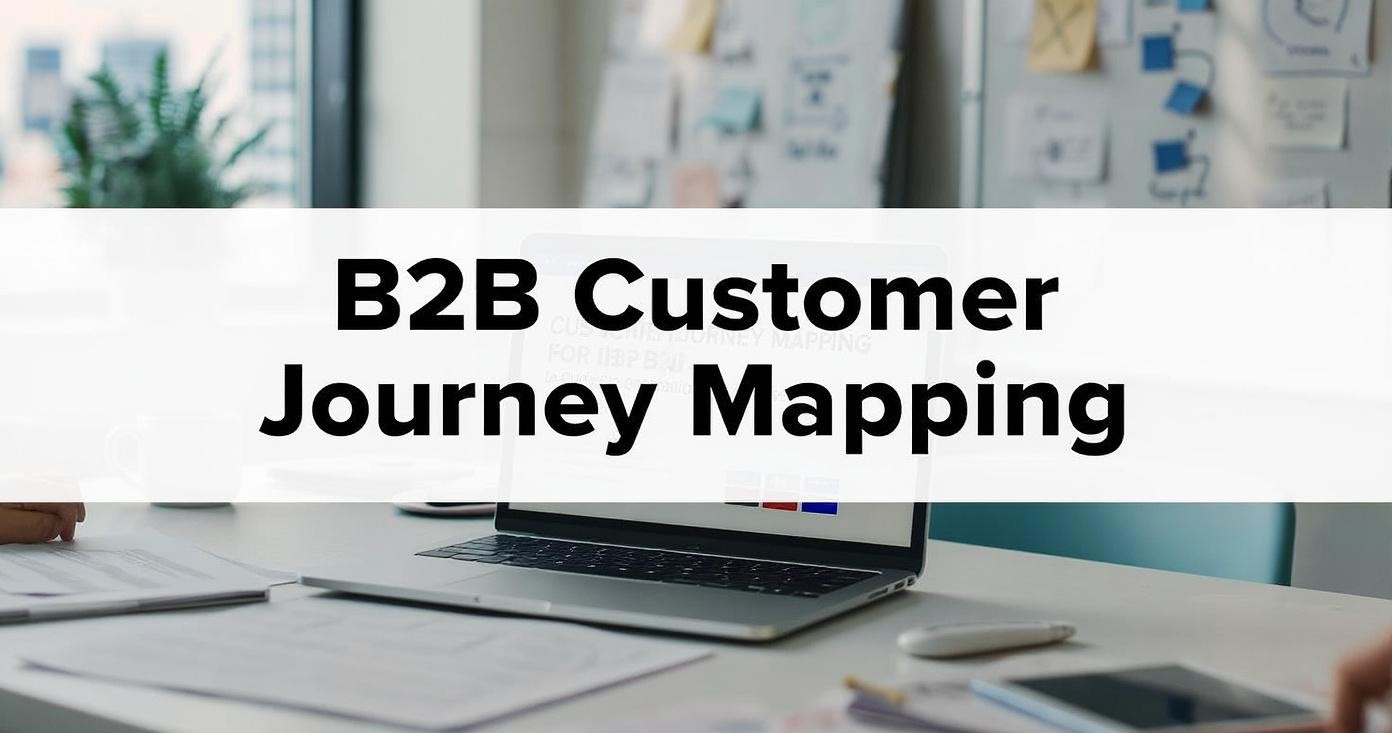
In B2B marketing, understanding how prospects move through the buying process is critical for driving effective demand generation. B2B Customer Journey Mapping helps businesses visualize each stage of the buyer’s journey and identify opportunities to enhance engagement and conversion rates. By ****yzing every touchpoint, marketers can optimize campaigns, create personalized experiences, and align marketing and sales efforts for maximum impact. This strategic approach ensures that prospects receive relevant content at every stage of their journey.
The first step in journey mapping is developing comprehensive buyer personas. Personas are detailed profiles of ideal customers, including demographics, job titles, company size, industry, and behavioral characteristics. In B2B contexts, understanding the roles of decision-makers, influencers, and end-users is essential. Mapping the journey for each persona allows marketers to deliver targeted messaging that addresses specific challenges and goals, increasing engagement and improving the likelihood of conversion.
B2B customer journeys typically include awareness, consideration, decision, and post-purchase stages. During the awareness stage, prospects recognize a problem or opportunity and seek educational content such as blogs, webinars, and research reports. In the consideration stage, buyers evaluate different solutions using case studies, product demos, and whitepapers. The decision stage focuses on validating ROI, reviewing testimonials, and assessing key differentiators. Post-purchase engagement ensures client retention, loyalty, and advocacy through onboarding, support, and feedback mechanisms.
Touchpoints are the interactions a prospect has with a brand, including website visits, social media, email campaigns, webinars, and sales calls. Mapping these touchpoints helps marketers identify gaps, reduce friction, and improve the overall buyer experience. For example, a lead who downloads content but does not receive timely follow-up may disengage. Tracking touchpoints across channels ensures consistent messaging and provides a seamless experience that nurtures leads toward conversion.
Data-driven insights are crucial for optimizing B2B customer journey mapping. Metrics such as engagement rates, click-through rates, form submissions, and conversion rates reveal how prospects interact with content and campaigns. Predictive ****ytics can forecast which leads are most likely to convert, enabling marketers to prioritize high-value opportunities. Combining quantitative data with qualitative feedback from surveys or interviews provides a complete understanding of buyer motivations, improving marketing decisions and demand generation results.
Successful journey mapping requires strong collaboration between marketing and sales teams. Marketing typically drives initial engagement through content and campaigns, while sales handles direct communication and relationship-building. Sharing insights from journey maps ensures alignment in messaging, timing, and account targeting. Account-based marketing strategies enhance this alignment by delivering personalized campaigns to high-value accounts, improving lead quality and accelerating pipeline growth.
Technology solutions are essential in B2B customer journey mapping. Platforms like HubSpot, Salesforce, and Marketo help track buyer interactions, automate workflows, and score leads. Automation ensures that prospects receive timely, relevant content, enhancing engagement and nurturing efficiency. Dashboards provide visual insights into journey performance, helping teams identify trends, gaps, and opportunities for optimization. Using technology improves accuracy, scalability, and the overall effectiveness of marketing initiatives.
Content is central to guiding prospects through each stage of the journey. Awareness-stage content educates and establishes authority, including blogs, ebooks, and industry research. Consideration-stage content provides in-depth insights through case studies, webinars, and product demos. Decision-stage content validates solutions using ROI calculators, testimonials, and comparisons. Personalization ensures content is relevant to each persona and stage, increasing engagement and conversions. Continuous evaluation of content performance allows marketers to refine campaigns and maximize ROI.
Journey mapping highlights gaps and friction points that may prevent prospects from advancing. Delayed follow-up, unclear messaging, or difficult website navigation can reduce engagement. Addressing these gaps improves the buyer experience and conversion rates. Regular audits of journey maps ensure they remain aligned with evolving buyer behaviors and market trends. Iterative improvements based on ****ytics and feedback maintain the effectiveness of B2B demand generation strategies.
Personalization is key to effective B2B customer journey mapping. Using behavioral data, marketers can tailor messaging, content, and campaigns to each persona and stage. Personalized experiences increase engagement, build trust, and improve conversion rates. Consistently applying personalization across all channels ensures a seamless journey, strengthens relationships, fosters loyalty, and encourages advocacy, supporting long-term demand generation success.
Measuring effectiveness is critical for optimizing customer journey mapping. Key metrics include lead-to-opportunity conversion rates, content engagement, deal size, time-to-close, and customer retention. Monitoring these KPIs allows marketers to assess campaign success and identify areas for improvement. Continuous optimization based on data ensures sustainable growth in lead generation and enhances marketing ROI.
Customer feedback adds qualitative insights to journey mapping. Surveys, interviews, and focus groups help marketers understand buyer motivations, challenges, and satisfaction. Combining feedback with quantitative ****ytics provides a holistic view of the buyer’s experience. Implementing changes based on these insights allows marketers to refine messaging, content, and engagement strategies, resulting in a more seamless and effective buyer experience.
Lead scoring and nurturing strategies complement journey mapping in B2B demand generation. Leads are prioritized based on engagement, persona alignment, and behavior. Tailored nurturing campaigns guide high-value prospects through relevant touchpoints with personalized content. Coordinated marketing and sales efforts ensure resources are focused on the most promising leads, maximizing conversions and ROI.
B2B customer journey mapping is an evolving process that adapts to changing buyer behaviors, market trends, and technological advancements. Regular updates, experimentation, and best practice adoption ensure journey maps remain relevant and effective. Companies that focus on continuous improvement generate higher-quality leads, accelerate the sales cycle, and achieve sustainable growth in demand generation efforts.
Read Full Article : https://acceligize.com/featured-blogs/customer-journey-mapping-for-b2b-demand-generation-a-guide-to-success/
About Us : Acceligize is a global B2B demand generation and technology marketing company helping brands connect with qualified audiences through data-driven strategies. Founded in 2016, it delivers end-to-end lead generation, content syndication, and account-based marketing solutions powered by technology, creativity, and compliance.
| Categories: | Services / Digital Marketing Services |
| Phone: | +91-9168161555 |
| Address: | kharadi |
| Email: | jacksmithjonh073@gmail.com |